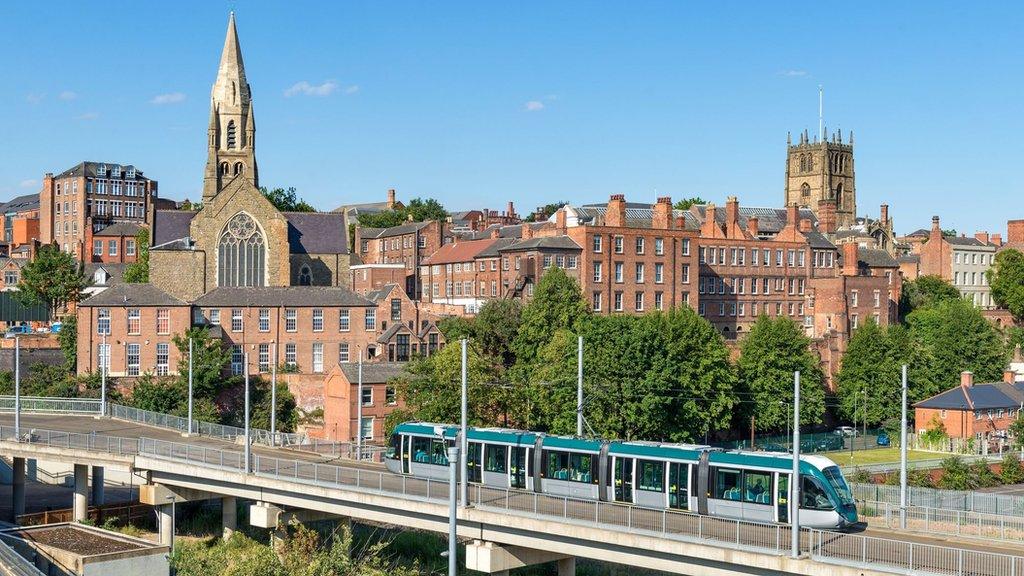What is happening at 'bankrupt' Nottingham City Council?
- Published
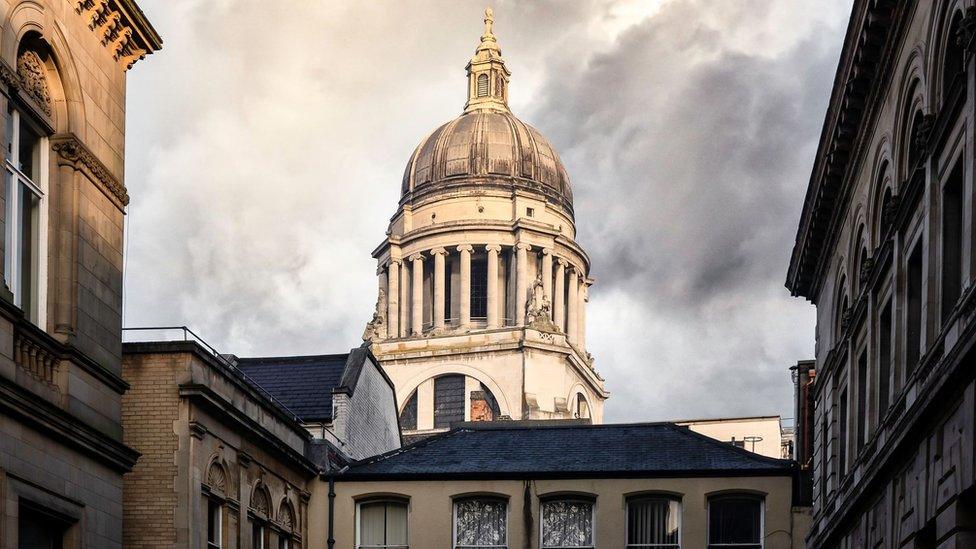
Nottingham City Council declared itself effectively bankrupt on Wednesday
Following Nottingham City Council's declaration of effective bankruptcy, the BBC looks at what the issuing of a section 114 notice means for the authority, and the 330,000 people who live in the city.
What has Nottingham City Council announced?
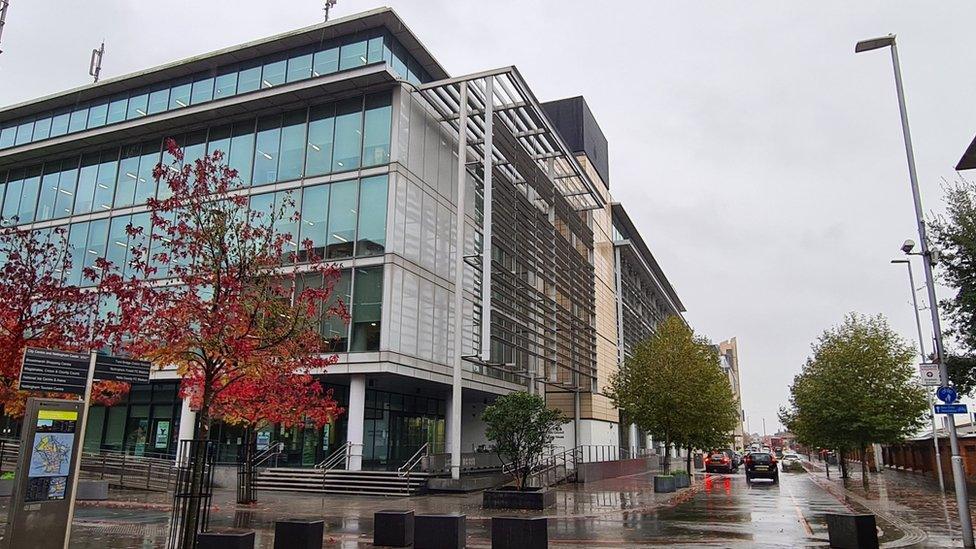
The government said it was considering "further action" at the city council
While a council cannot technically go bankrupt, the declaration of a section 114 notice is as close as it can come - an admission the authority cannot balance its books.
Effectively, the authority's chief financial officer, Ross Brown, has said its spending will outstrip its income in this financial year.
A recent report said the council was set for a £23m overspend in the 2023-24 financial year.
The section 114 notice means the council has ceased all new spending on services that it is not obliged by law to provide, or that it has already committed to.
How did the council reach crisis point?

Robin Hood Energy - like its legendary namesake - aimed to tackle social injustice
The section 114 notice has not come as a major surprise. The city council has struggled with numerous high-profile financial shocks and challenges in recent years.
An accumulation of financial pressures have come to a head, both from external factors facing all local authorities, and from its own decisions.
Inflation has caused the cost of providing services to rocket, at the same time as demand for them has soared.
Nottingham also has a low council tax base, with 80% of properties in bands A and B, meaning it can raise far less in council tax than areas with more high-band properties.
The Labour-run council has pointed the finger at the government, saying funding from central government has been pared back - but its own key decisions have come under scrutiny.
It has lost millions of pounds from the collapse of council-owned energy firm Robin Hood Energy in 2020, as well as a huge misspending in the council's ringfenced Housing Revenue Account, which it illegally used to prop up day-to-day council spending.
The Robin Hood Energy saga cost the taxpayer more than £38m and saw the loss of 230 jobs, while the cost of the repayments following the council's unlawful housing spending has increased to more than £50m, due to inflation.
The authority also invested £17m in the private sector-led regeneration of the Broadmarsh shopping centre, only to have to take charge of the scheme when owners Intu fell into liquidation.
The council's three subsequent bids for £20m of levelling up funding to kickstart the project have not won government backing.
These various crises have depleted the council's "safety net" reserves and its own auditors gave a withering assessment earlier this year, declaring its financial management "not fit for purpose".
Will bins still be emptied?
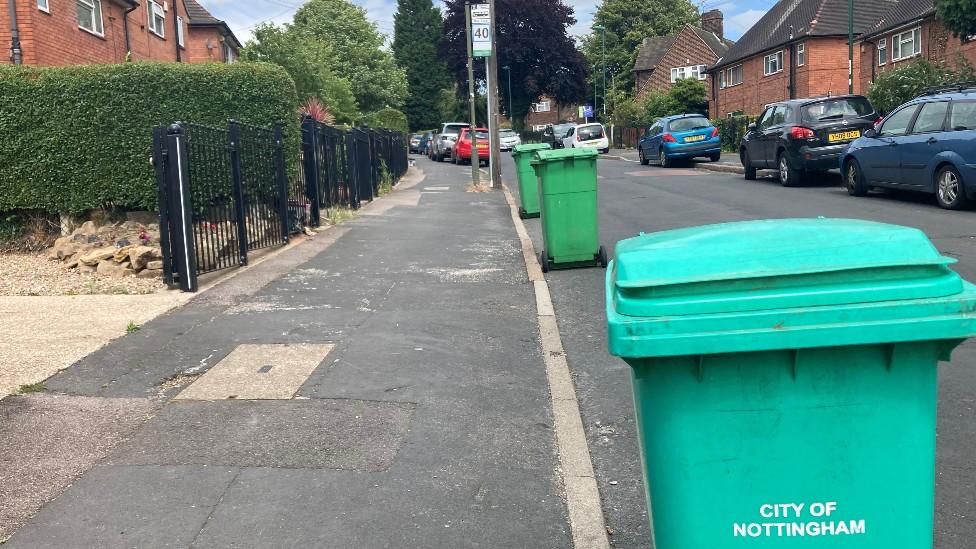
Rubbish collection is one of the council's statutory duties
In short, yes. Whatever happens next, the council is legally obliged to continue providing certain services to residents.
These include:
Education services
Children's safeguarding and social care
Adult social care
Waste/bin collections
Planning and housing services
Maintaining roads (not motorways or most A-roads)
Library services
These services, however, include some of the most costly responsibilities facing the council - particularly the care of the city's most vulnerable elderly and younger people.
And cuts to them still could come as the council reduces spending to absolute minimum levels.
The council, a major employer in the city, will continue to pay its staff and must, by law, continue to collect council tax.
What will happen to the city's cultural landmarks?
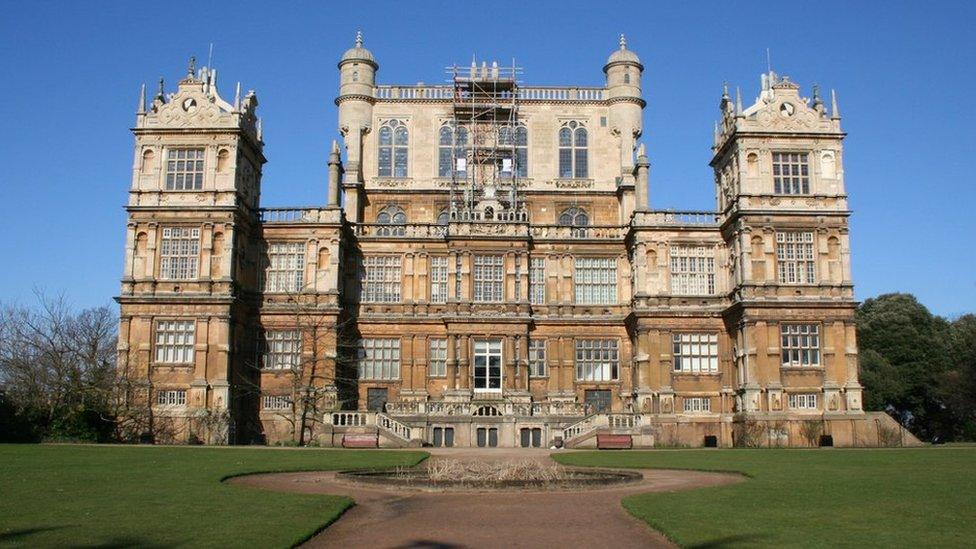
The council runs many of the city's parks and attractions including Wollaton Hall
Council leader David Mellen has told the BBC the authority has sold more than £60m of its assets, including land and buildings, in the past four years and said more sales and an auction were planned in February.
The city council owns and runs some of Nottingham's most popular attractions, including Wollaton Hall and Newstead Abbey, as well as parks and leisure centres.
It also runs Nottingham Castle, having stepped in to reopen the site after the charitable trust running it went into liquidation in November 2022.
Mr Mellen said: "We'll be looking at all the things that are not statutory, but that doesn't mean we will be closing everything else because parks are vital to people in Nottingham.
"Our parks will stay open but whether every bit of maintenance continues or carries on at the same level is something we will have to look at.
"At this time, I'm not in a position to say what will happen in the future but every bit of spending will be looked at."
The council plans to reduce the amount of space it uses in its Loxley House headquarters and rent out office space, Mr Mellen said.
Will council tax go up?
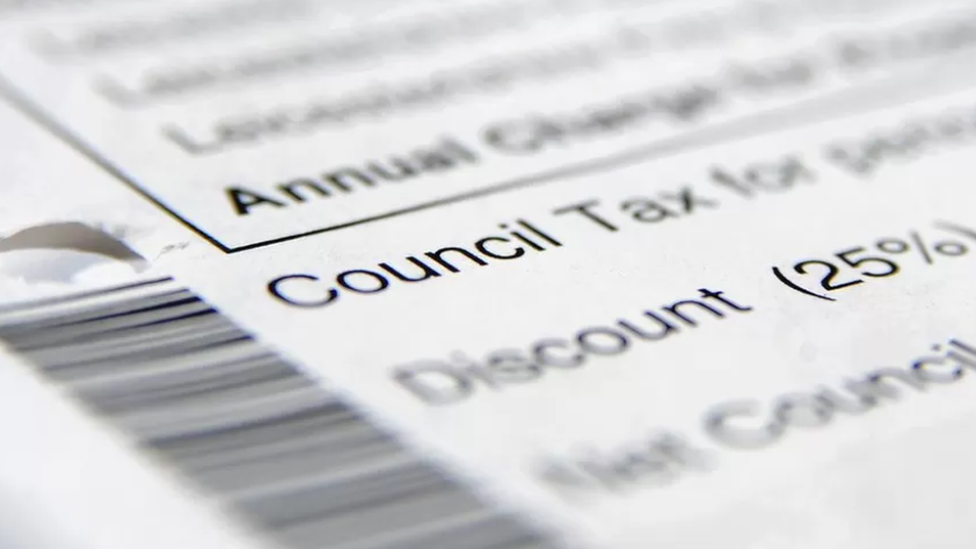
Council tax bills could rise sharply in April
Council tax tends to rise each year anyway, but there is a chance it could go up by more.
The government caps how much councils can increase it each year without triggering a local referendum.
The limit for this financial year is 5% for councils that provide social care, which Nottingham does, but other councils that have issued section 114 notices have been allowed to raise it by more.
That means bills might rise sharply from April, but the amount will be influenced by how much the city council will receive in its next government funding settlement, expected before Christmas.
Will the government now step in?
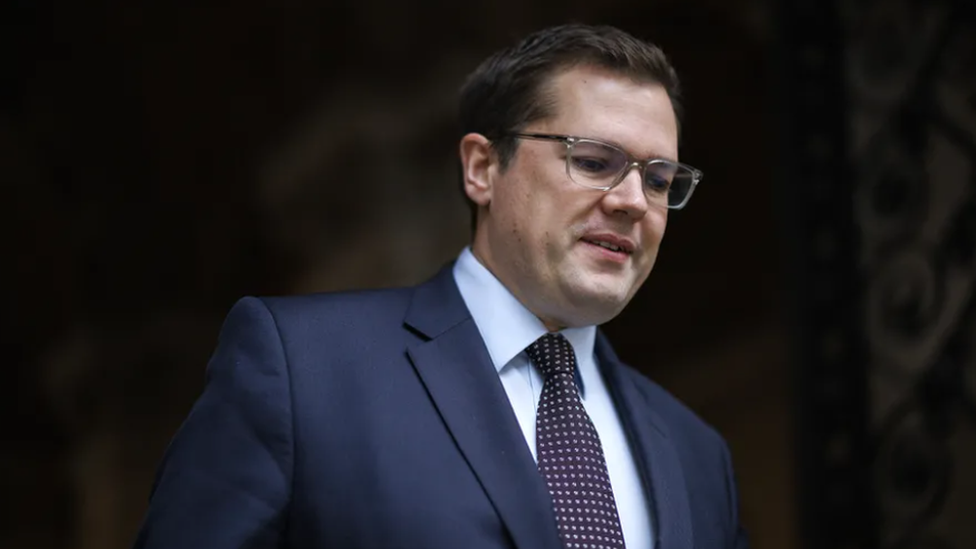
Newark MP and immigration minister wants the government to "restore order" at the council
Mr Mellen has insisted he will not step down as council leader following the section 114 notice, but the spectre of government intervention hangs over the authority.
The Department for Levelling Up, Housing and Communities (DLUHC) has been closely watching the city council's finances in recent years.
It has twice stopped short of appointing commissioners to take over control of the council - as it has in Birmingham and Liverpool.
Immigration minister Robert Jenrick, MP for neighbouring Newark, said: "Nottingham City Council and its Labour leadership have proven themselves utterly unfit to govern this great city.
"Their breathtaking waste and incompetence have let residents down for long enough.
"It's time for the Secretary of State to appoint commissioners to restore order."
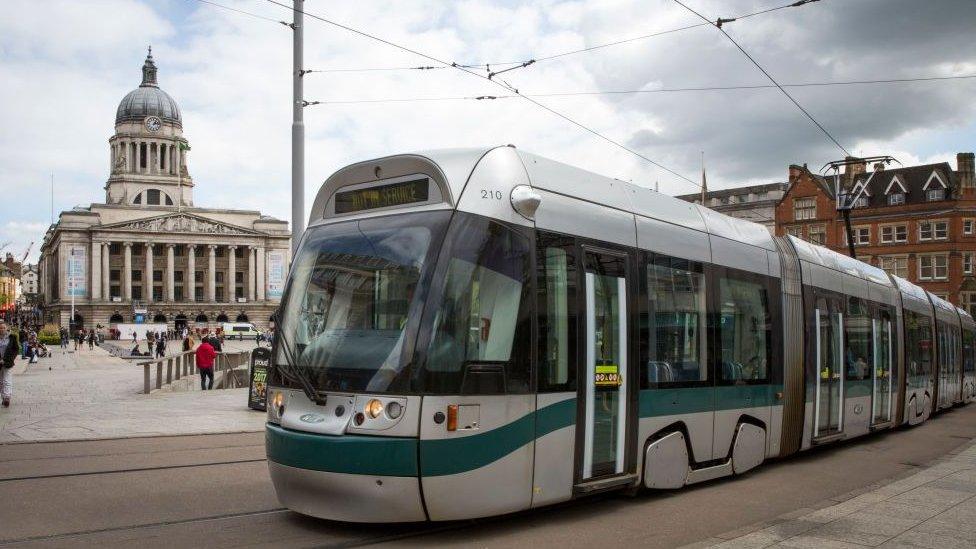
Councillors will meet within 21 days to discuss how to deal with the financial challenges
The DLHUC, which set up an improvement board to help the council repair its broken finances, accused the council of a "lack of urgency" in tackling issues.
It added: "We are assessing the situation and will consider whether further action is necessary."
The council's Labour group said the reason for the authority's financial woes was "simple".
It said: "Demand for our services is rising, while funding from the government gets less in real terms each year.
"All councils are facing these pressures and many will be considering the issuing of a section 114.
"This is happening at a time when we have had years of underfunding from the Tory government."
What happens next?
Now the council has issued its section 114 notice, it cannot sign off any new spending and must hold an emergency meeting within 21 days to discuss next steps.
An amended budget is then likely to be approved and include some hefty cuts to services.

Follow BBC East Midlands on Facebook, external, on X, external, or on Instagram, external. Send your story ideas to eastmidsnews@bbc.co.uk.
Related topics
- Published30 November 2023
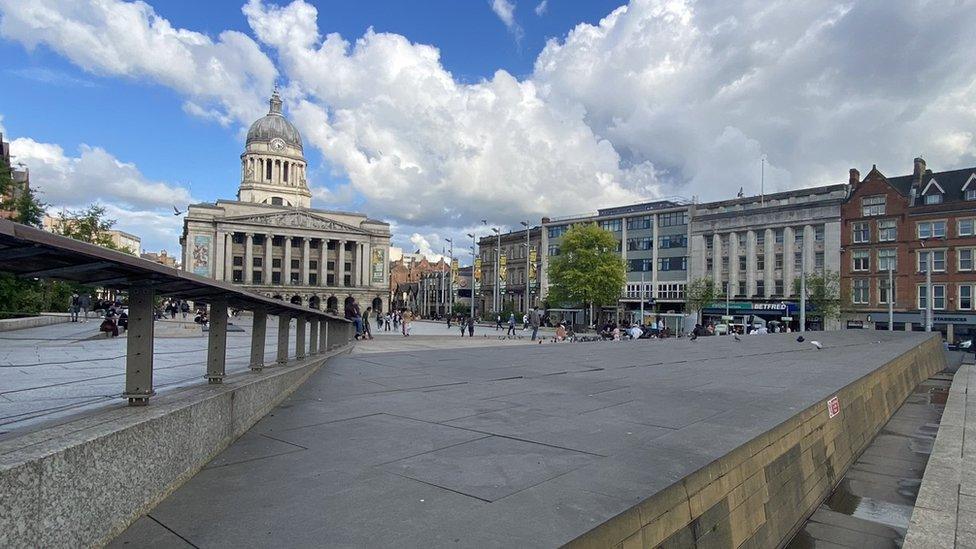
- Published29 November 2023
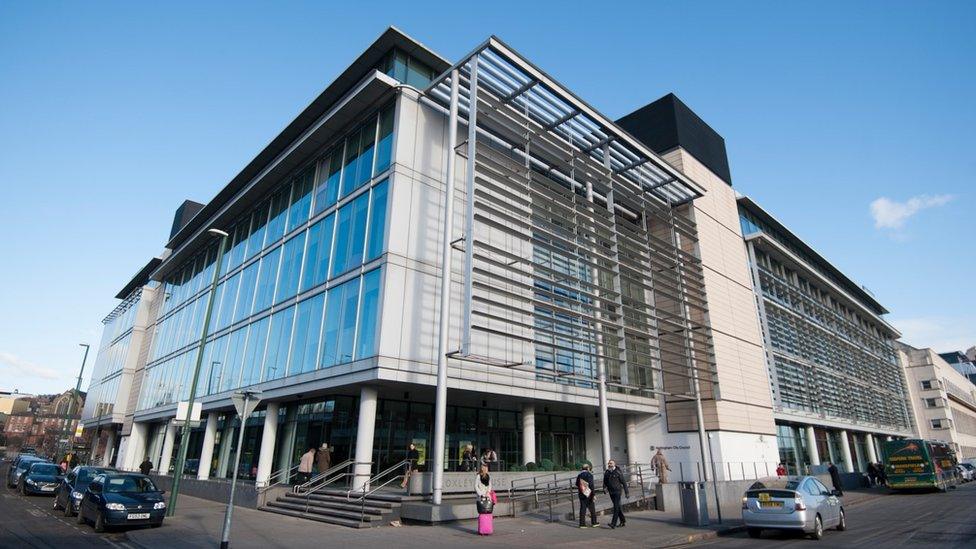
- Published29 November 2023
